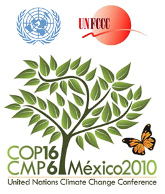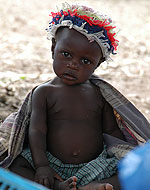Historical data show that the majority of greenhouse emissions have been by rich nations, kno ]]>

Apart from China and India, the remainder of the top 10 historical greenhouse gas emitters have been from Annex I countries.

This is why 2 decades ago the climate negotiations started by understanding there were "common but differentiated principles" and why "Annex I" countries were initially given target emissions while the rest were to be given space to grow given the urgent need for poverty alleviation and development.
Furthermore, climate negotiations frameworks have always said developing nations need to avoid a polluting path to industrialization, so they can’t just use historic emissions injustice as an excuse not to do anything. At the same time, the dirty path to development was also the cheap and easy path which developing countries need to avoid, so it was also agreed that the Annex I countries should help developing countries in various ways. Needless to say much of this has not really happened.
These and additional charts have been added based on updated data up to 2008 on historical carbon emissions plus estimated emissions for 2009 and 2010.
Read full article: Climate Justice and Equity
]]>
 An overview of the Climate Change Conference (also known as COP 17), held in Durban, South Africa in the December 2011.
Predictably and sadly, the same issues have resurfaced: lack of media coverage, West stalling on doing anything trying to blame India and China instead, lack of funding, disagreement on how to address it, etc.
An overview of the Climate Change Conference (also known as COP 17), held in Durban, South Africa in the December 2011.
Predictably and sadly, the same issues have resurfaced: lack of media coverage, West stalling on doing anything trying to blame India and China instead, lack of funding, disagreement on how to address it, etc.Geopolitical threats (real and imaginary) quickly focus a lot of political will and money is easily found to mobilize military forces when needed.
The economy also takes center stage as the current pressing issue, while climate change is easily deferred, in the hopes that the West can let China and India pick up the burden of addressing emissions even though they have not contributed to the historical build up of emissions that have started the recent changes in the climate.
This page is an overview of the Durban conference.
Read full article: COP17 - Durban Climate Conference
]]>
 A recent IAEA report on Iran’s nuclear program was portrayed by most Western mainstream media and politicians as new proof Iran is close to building nuclear weapons. The US Senate passed sanctions on Iran targeting its central bank in response.
However, the report does not say what the mainstream media and politicians claim. It has been much more guarded and much of it is about the state of Iran’s program up to 2003. After that period, the report is much more uncertain. Furthermore, many experts contend that the speculations (not definitive proof) that are in the report are misguided, too, leaning on unreliable sources, for example.
A recent IAEA report on Iran’s nuclear program was portrayed by most Western mainstream media and politicians as new proof Iran is close to building nuclear weapons. The US Senate passed sanctions on Iran targeting its central bank in response.
However, the report does not say what the mainstream media and politicians claim. It has been much more guarded and much of it is about the state of Iran’s program up to 2003. After that period, the report is much more uncertain. Furthermore, many experts contend that the speculations (not definitive proof) that are in the report are misguided, too, leaning on unreliable sources, for example.This update to the page on Iran has more information about this. Although the page is long, look for the new section about half way down under the heading of
Regurgitating old stories as new information to justify sanctions?
Read full article: Iran
]]>
 In the US the protest movement is symbolically against the top 1%. Income data from the US Congressional Budget Office, however, shows that it isn’t just the top 1% benefiting far more than the rest of American society, but the top 0.1% in particular.
High levels of inequality is generally believed to affect social cohesion. Some findings suggest that once nations are industrialized, more equal societies almost always do better in terms of health, well-being and social cohesion and that large income inequalities within societies destroys the social fabric and quality of life for everyone.
In the US the protest movement is symbolically against the top 1%. Income data from the US Congressional Budget Office, however, shows that it isn’t just the top 1% benefiting far more than the rest of American society, but the top 0.1% in particular.
High levels of inequality is generally believed to affect social cohesion. Some findings suggest that once nations are industrialized, more equal societies almost always do better in terms of health, well-being and social cohesion and that large income inequalities within societies destroys the social fabric and quality of life for everyone.This update to the poverty page adds a section on inequality in the US, as well as adding some additional information about research showing globally some 147 multinational companies having core global influence and power.
Read full article: Poverty Around the World
]]>
 The global financial crisis has spawned a global protest movement campaigning against things like inequality, corporate greed, lack of jobs, etc. Although these protests have occurred for decades, they have typically been in the developing countries, or about the situation in developing countries. As such, many Western nations, who have strongly influenced the conditions in developing countries, have typically not paid much attention to such protests, no matter how large. However, this time, the global financial crisis has hit the ordinary citizens of Western nations quite hard, and inspired by the Arab Spring and protests in Spain, a global movement seems to have sprung up.
The global protests page had not been updated since the end of 2003, but has not included a brief overview of more recent protests such as the so-called Occupy Movement. The older content remains because it is interesting to note some of the parallels too, and it is perhaps important to note that these protests are unfortunately not new. Whether this time it can make a difference is too early to tell but a lot of people in wealthy countries this time are also participating.
The global financial crisis has spawned a global protest movement campaigning against things like inequality, corporate greed, lack of jobs, etc. Although these protests have occurred for decades, they have typically been in the developing countries, or about the situation in developing countries. As such, many Western nations, who have strongly influenced the conditions in developing countries, have typically not paid much attention to such protests, no matter how large. However, this time, the global financial crisis has hit the ordinary citizens of Western nations quite hard, and inspired by the Arab Spring and protests in Spain, a global movement seems to have sprung up.
The global protests page had not been updated since the end of 2003, but has not included a brief overview of more recent protests such as the so-called Occupy Movement. The older content remains because it is interesting to note some of the parallels too, and it is perhaps important to note that these protests are unfortunately not new. Whether this time it can make a difference is too early to tell but a lot of people in wealthy countries this time are also participating.Read full article: Public Protests Around the World
]]>
 The latest data covering global arms sales shows that sale of arms in 2010 decreased to around $40.4 billion, 76% of which went to developing countries
]]>
The global financial crisis has affected many countries, and developing countries have started to see a decrease in purchases in the last couple of years. Although most arms are sold to developing countries, 10 countries account for some 60% of all sales in the period 2003 to 2010, which the data covers. Saudi Arabia tops that list followed by India and the United Arab Emirates. (As well as concerns about some of the regimes in the top buyers, some of this spending is also said to be due to modernizing efforts.)
The latest data covering global arms sales shows that sale of arms in 2010 decreased to around $40.4 billion, 76% of which went to developing countries
]]>
The global financial crisis has affected many countries, and developing countries have started to see a decrease in purchases in the last couple of years. Although most arms are sold to developing countries, 10 countries account for some 60% of all sales in the period 2003 to 2010, which the data covers. Saudi Arabia tops that list followed by India and the United Arab Emirates. (As well as concerns about some of the regimes in the top buyers, some of this spending is also said to be due to modernizing efforts.)Updated graphs and charts on arms sales data are provided here.
The arms trade is big business. The 5 permanent members of the UN Security Council (US, Russia, France, United Kingdom and China), together with Germany and Italy, account for approximately 84% of the arms sold between 2003 and 2010.
Some of the arms sold go to regimes where human rights violations will occur. Corruption often accompanies arms sales due to the large sums of money involved.
Read full article: The Arms Trade Is Big Business
]]>

 Around 21,000 children die every day around the world.
Around 21,000 children die every day around the world.That is equivalent to:
- 1 child dying every 4 seconds
- 14 children dying every minute
- A 2011 Libya conflict-scale death toll every day
- A 2010 Haiti earthquake occurring every 10 days
- A 2004 Asian Tsunami occurring every 11 days
- An Iraq-scale death toll every 19–46 days
- Just under 7.6 million children dying every year
- Some 92 million children dying between 2000 and 2010
Despite the scale of this daily/ongoing catastrophe, it rarely manages to achieve, much less sustain, prime-time, headline coverage.
This update includes updated numbers, charts and graphs. It shows that there is steady progress each year in reducing the number of children that die each year, but clearly the number is still high.
Read full article: Today, almost 21,000 children died around the world
]]>
 A quick look back over the decade since the 9-11 attacks finds that the neo-conservatives have achieved the opposite of what they set out to do: rather than winning a war on terror and expanding their power even further, they have over-stretched their own nation, militarily and economically. The Bush Administration preferred to concentrate on Iraq rather than Bin Laden and the trillions of dollars spent on this (directly and indirectly) has contributed to the recent economic problems the country now faces. All terribly costly given there were opportunities to get Bin Laden a lot earlier.
Media coverage and public attitudes have also shifted in the past decade, now almost reflecting partisan lines. Rights groups around the world have long voiced concerns that the war on terror is also an excuse for governments to wage a war on freedoms. Bin Laden may be dead but are the terrorists winning?
A quick look back over the decade since the 9-11 attacks finds that the neo-conservatives have achieved the opposite of what they set out to do: rather than winning a war on terror and expanding their power even further, they have over-stretched their own nation, militarily and economically. The Bush Administration preferred to concentrate on Iraq rather than Bin Laden and the trillions of dollars spent on this (directly and indirectly) has contributed to the recent economic problems the country now faces. All terribly costly given there were opportunities to get Bin Laden a lot earlier.
Media coverage and public attitudes have also shifted in the past decade, now almost reflecting partisan lines. Rights groups around the world have long voiced concerns that the war on terror is also an excuse for governments to wage a war on freedoms. Bin Laden may be dead but are the terrorists winning?Read full article: War on Terror
]]>
 The relationship between health and poverty is reasonably well known; one can exacerbate and contribute to the other in a vicious cycle.
This update, as well as including a few health stats updates, provides further information on noncommunicable diseases (which cause some two-thirds of all deaths each year) and more details on the relationship with poverty.
The relationship between health and poverty is reasonably well known; one can exacerbate and contribute to the other in a vicious cycle.
This update, as well as including a few health stats updates, provides further information on noncommunicable diseases (which cause some two-thirds of all deaths each year) and more details on the relationship with poverty.Read full article: Global Health Overview
]]>
 Corruption is both a major cause and a result of poverty around the world. It occurs at all levels of society, from local and national governments, civil society, judiciary functions, large and small businesses, military and other services and so on.
Some countries are seeing increasing protests at large scale corruption. In India, a largely non-violent movement has sprung up, which has also inspired anti-corruption campaigners in Nepal. In Brazil, inspired by the way protesters in Spain have used social networks, technology has been used to increasingly campaign against corruption there.
Corruption is both a major cause and a result of poverty around the world. It occurs at all levels of society, from local and national governments, civil society, judiciary functions, large and small businesses, military and other services and so on.
Some countries are seeing increasing protests at large scale corruption. In India, a largely non-violent movement has sprung up, which has also inspired anti-corruption campaigners in Nepal. In Brazil, inspired by the way protesters in Spain have used social networks, technology has been used to increasingly campaign against corruption there.The global financial crisis has made conditions worse in many places for many people. Increasing food prices and other policy decisions governments are pushing through is leading to many volatile conditions, and it may be that this is giving a much needed push for large-scale grassroots and civil society movements against debilitating corruption.
This update to the corruption section includes an overview of some of the protests mentioned above.
Read full article: Corruption
]]>
 Into mid-2011, the world’s worst food crisis is being felt in East Africa, in Ethiopia, Somalia and Kenya.
Despite successive failed rains, the crisis has been criticized as avoidable and man-made. This is because the situation had been predicted many months before by an international early warning system. Both the international community and governments in the region have been accused of doing very little in the lead up to this crisis. In addition, high food prices have forced food out of the reach of many people, while local conflicts exacerbate the situation.
Into mid-2011, the world’s worst food crisis is being felt in East Africa, in Ethiopia, Somalia and Kenya.
Despite successive failed rains, the crisis has been criticized as avoidable and man-made. This is because the situation had been predicted many months before by an international early warning system. Both the international community and governments in the region have been accused of doing very little in the lead up to this crisis. In addition, high food prices have forced food out of the reach of many people, while local conflicts exacerbate the situation.As the international organization Oxfam describes: 12 million people are in dire need of food, clean water, and basic sanitation. Loss of life on a massive scale is a very real risk, and the crisis is set to worsen over the coming months, particularly for pastoralist communities.
This page also presents news coverage from Inter Press Service on this crisis.
Read full article: East Africa Food Crisis 2011
]]>
 When talking about the impacts of climate change, we mostly hear about changes to land and the planet’s surface or atmosphere. However, most of the warming is going into the oceans where a lot of ecosystem changes are also occurring.
This update includes a couple of info graphics and charts as well as a video from an ocean and climate scientist that explains this further.
When talking about the impacts of climate change, we mostly hear about changes to land and the planet’s surface or atmosphere. However, most of the warming is going into the oceans where a lot of ecosystem changes are also occurring.
This update includes a couple of info graphics and charts as well as a video from an ocean and climate scientist that explains this further.Read full article: Climate Change Affects Biodiversity
]]>

Yet, over 40 years ago nations promised to reach 0.7% of their GNI by the mid-1970s. While each year the amount of aid falls quite short of that 0.7% target (less than half of that target), the quality and effectiveness of that aid is often questionable, sometimes benefiting the donor more than the recipient due to the types of conditions attached to this aid.
This update includes a number of new and updated charts and graphs.
Read full article: Foreign Aid for Development Assistance
]]>

This update includes updated charts and graphs that look into this further.
Read full article: Official global foreign aid shortfall: $4 trillion
]]>
 In the wake of the devastating earthquake and tsunami in Japan and the nuclear disaster that followed in Fukushima, many regions around the world have found their their nuclear power policy and plans subject to more public debate and scrutiny.
Many nations have decided to continue including nuclear power in their plans, as they feel it will be safe, especially if not situated in seismic zones. Many of them have also decided on further reviews first. Some have decided to either forgo nuclear power or, as in the case of Germany, opted for an accelerated phaseout of all nuclear power plants and push for renewables instead.
In the wake of the devastating earthquake and tsunami in Japan and the nuclear disaster that followed in Fukushima, many regions around the world have found their their nuclear power policy and plans subject to more public debate and scrutiny.
Many nations have decided to continue including nuclear power in their plans, as they feel it will be safe, especially if not situated in seismic zones. Many of them have also decided on further reviews first. Some have decided to either forgo nuclear power or, as in the case of Germany, opted for an accelerated phaseout of all nuclear power plants and push for renewables instead.The Intergovernmental Panel on Climate Change also recently released a special report on renewable energy noting it already accounted for some 12% of global primary energy supply (not just electricity) in 2008 and has potential to improve even more as costs continue to decline, while fossil fuel costs continue to rise.
Even if there is a technical case for nuclear power for the future (the nuclear power plants the suffered the most at Fukushima were older ones and newer ones are supposed to be more advanced technology and have even more safety technology built in), is it now less palatable, politically?
Read full article: Energy Security
]]>

The highest military spender is the US accounting for 43% of the world’s spending, more than the next top 17 countries combined, and more than all its potential enemies, combined.
This update includes updated figures, graphs and charts exploring this further.
Read full article: World Military Spending
]]>
 Pollution’s effects on wildlife and nature has long been a concern. But the global nature of pollution is only being realized in recent years. For example, our pollution (toxic chemicals, plastics and other garbage, and so on) often ends up in the oceans and can spread around the world, affecting wildlife in the most remote regions in the world such as the Midway Atolls in the Pacific, or in the Arctic.
Photographer Chris Jordan captured this vividly when his photos showed dead baby albatross birds that had household garbage such as plastic bottle caps in their stomachs. Although these birds were in very remote parts of the world, the immense human garbage floating in the pacific ocean is sometimes mistaken for food by the albatross who take it to their young in the remote islands:
Pollution’s effects on wildlife and nature has long been a concern. But the global nature of pollution is only being realized in recent years. For example, our pollution (toxic chemicals, plastics and other garbage, and so on) often ends up in the oceans and can spread around the world, affecting wildlife in the most remote regions in the world such as the Midway Atolls in the Pacific, or in the Arctic.
Photographer Chris Jordan captured this vividly when his photos showed dead baby albatross birds that had household garbage such as plastic bottle caps in their stomachs. Although these birds were in very remote parts of the world, the immense human garbage floating in the pacific ocean is sometimes mistaken for food by the albatross who take it to their young in the remote islands:
Chris Jordan/Midway
The Animal and Nature Conservation page on this site was updated to include a section on pollution and its effects.
Read full article: Animal and Nature Conservation
]]>
 The British National Health Service, like many others around the world, is facing budgetary and reform challenges.
Criticism in recent weeks about planned policy changes have forced a bit of a pause. At the same time, it seems that under the guise of reform and the global financial crisis, the government may be pushing for more privatisation of the health service, which is quite unwanted and unproven.
The British National Health Service, like many others around the world, is facing budgetary and reform challenges.
Criticism in recent weeks about planned policy changes have forced a bit of a pause. At the same time, it seems that under the guise of reform and the global financial crisis, the government may be pushing for more privatisation of the health service, which is quite unwanted and unproven.A diagram showing a network of lobbying networks connected to health policy makers has been added.
In addition, the various charts on numerous global health indicators were also updated.
Read full article: Health Care Around the World
]]>
 Following elections in Cote d’Ivoire in October 2010, both President Laurent Gbagbo and opposition candidate, Alassane Ouattara, claimed victory. International observers agreed that the Ouattara had won, but Gbagbo refused to accept this.
Negotiations failed and while the world’s attention was elsewhere, the situation became volatile and violent outbursts turned into the country’s second civil war. Forces supporting Ouattara have swept through the country and Gbagbo’s position looks precarious while he remains defiant.
Following elections in Cote d’Ivoire in October 2010, both President Laurent Gbagbo and opposition candidate, Alassane Ouattara, claimed victory. International observers agreed that the Ouattara had won, but Gbagbo refused to accept this.
Negotiations failed and while the world’s attention was elsewhere, the situation became volatile and violent outbursts turned into the country’s second civil war. Forces supporting Ouattara have swept through the country and Gbagbo’s position looks precarious while he remains defiant.At the same time, possibly a million people are thought to have fled their homes, about 100,000 of which have crossed over into neighboring Liberia.
Thousands of civilians have been killed in what observers have found to be mass human rights violations. There have also been reports of massacres and mass graves. UN personnel on the ground have been targeted. There are accusations of violence by both sides.
This situation had been brewing for a long time, and yet, the international community has been comparatively silent compared to how they have reacted to the situation in Libya.
This page presents news coverage from Inter Press Service on this crisis.
Read full article: Cote d’Ivoire Crisis
]]>
 The earthquake off the coast of Japan on March 11, 2011 was one of the biggest recorded, measuring 9 on the richter scale.
It was the resulting tsunami, however, that caused the most destruction. It devastated the northeast of Japan, leaving many thousands dead or missing, and hundreds of thousands homeless or evacuated from the area.
The earthquake off the coast of Japan on March 11, 2011 was one of the biggest recorded, measuring 9 on the richter scale.
It was the resulting tsunami, however, that caused the most destruction. It devastated the northeast of Japan, leaving many thousands dead or missing, and hundreds of thousands homeless or evacuated from the area.In addition, various power generators failed. Some older nuclear power stations risked meltdown and suffered explosions and radioactive leaks. Workers have battled for weeks to try and bring the situation under control. Radioactive material has been detected in various places.
It is thought that the cost of the earthquake and tsunami could be over $300 billion — the world’s most expensive natural disaster on record.
There are global economic repercussions as well, given Japan’s key position in the world economy.
There are so many issues that this tragic event has caused that I can’t cover them on my own. However, this new page brings together news stories on the issue from Inter Press Service
Read full article: Japan Earthquake, Tsunami and Nuclear Crisis
]]>
 The crisis in Libya comes in the context of wider unrest throughout the Middle East and North Africa. The surge of what looks
]]>
Peaceful protests against the long-running oppressive Qadhafi regime in February resulted in a violent crackdown. As the situation quickly escalated ordinary citizens took up arms to help free themselves from Qadhafi’s brutal regime. Despite some military defections, the opposition has generally been a disorganized and out-gunned rebel force.
The crisis in Libya comes in the context of wider unrest throughout the Middle East and North Africa. The surge of what looks
]]>
Peaceful protests against the long-running oppressive Qadhafi regime in February resulted in a violent crackdown. As the situation quickly escalated ordinary citizens took up arms to help free themselves from Qadhafi’s brutal regime. Despite some military defections, the opposition has generally been a disorganized and out-gunned rebel force.As Qadhafi’s forces increasingly targeted civilians the opposition appealed to the international community for a no-fly zone to limit or prevent the bloodbath that Qadhafi threatened.
The West appears to have responded with what looks like a genuine humanitarian intervention attempt. Yet, when looked at a bit more deeply, there are many murky — often contradictory — issues coming to the fore that complicate the picture.
These mixed messages make the future for Libya uncertain. Civil war is how some commentators have already started to describe the conflict, which would imply a long drawn out conflict, not a quick fix that the West hoped for.
This new page looks at this issue further:
Read full article: Crisis in Libya
]]>
 It is well established now that large scale fossil fuel production comes at a high geopolitical cost as well as an environmental one. That is, those dependent on such fuels resort to violence or support authoritarian regimes to ensure they retain their positions of power and influence. This is why we see so many autocratic regimes in the Middle East and why they have been supported for decades by the West.
And yet while alternatives to fossil fuels also include large scale government or big industry backed ideas, there is also the potential threat of locally produced energy sources, such as solar power. That is, it takes away the role of governments and large industries in these areas, potentially giving people truer freedom while bringing development. This update explores this further.
It is well established now that large scale fossil fuel production comes at a high geopolitical cost as well as an environmental one. That is, those dependent on such fuels resort to violence or support authoritarian regimes to ensure they retain their positions of power and influence. This is why we see so many autocratic regimes in the Middle East and why they have been supported for decades by the West.
And yet while alternatives to fossil fuels also include large scale government or big industry backed ideas, there is also the potential threat of locally produced energy sources, such as solar power. That is, it takes away the role of governments and large industries in these areas, potentially giving people truer freedom while bringing development. This update explores this further.Read full article: Energy Security
]]>
 A wave of protests has erupted throughout the Middle East and North Africa. A combination of the global financial crisis, rising costs of living, high unemployment — especially of educated youth, frustration from decades of living under authoritarian and corrupt regimes, various document leaks revealing more details about how governments around the world are dealing and viewing each other, have all combined in different ways in various countries, leading to a wave of rising anger.
Some protests have become revolutions as governments such as those in Tunisia and Egypt have been overthrown. Others have not got that far but have sometimes been peaceful, other times met with very brutal repression.
A wave of protests has erupted throughout the Middle East and North Africa. A combination of the global financial crisis, rising costs of living, high unemployment — especially of educated youth, frustration from decades of living under authoritarian and corrupt regimes, various document leaks revealing more details about how governments around the world are dealing and viewing each other, have all combined in different ways in various countries, leading to a wave of rising anger.
Some protests have become revolutions as governments such as those in Tunisia and Egypt have been overthrown. Others have not got that far but have sometimes been peaceful, other times met with very brutal repression.Is this a wave of democracy that cannot be stopped, and will forever change the region, and the global power politics?
Read full article: Middle East and North Africa Unrest
]]>
 2010 was the warmest year on record (tied with 2005). 2010 also saw record lows as severe winters hit parts of the northern hemisphere, while others faced heat waves, floods or droughts. Other than 1998, the 2000s dominated the top 10 list of warmest years on record.
This update includes a number of updated graphs on various climate indicators as well as new charts and information on the relationship between climate change, warming oceans (where the majority of global warming is going) and colder weather in the northern hemisphere.
2010 was the warmest year on record (tied with 2005). 2010 also saw record lows as severe winters hit parts of the northern hemisphere, while others faced heat waves, floods or droughts. Other than 1998, the 2000s dominated the top 10 list of warmest years on record.
This update includes a number of updated graphs on various climate indicators as well as new charts and information on the relationship between climate change, warming oceans (where the majority of global warming is going) and colder weather in the northern hemisphere.Read full article: Climate Change and Global Warming Introduction
]]>
 In 2010 scientists observed huge coral death which struck Southeast Asian and Indian Ocean reefs over a period of a few months following a large bleaching event in the region.
One of the scientists described it as the worst coral die-off seen since 1998 (a year which saw one a very bad mass global coral bleaching event). The scientist also feared the 2010 event may prove to be the worst such event known to science. Although bleaching in the past has had many causes, recent ones are attributed to rapidly rising sea temperatures due to climate change.
In 2010 scientists observed huge coral death which struck Southeast Asian and Indian Ocean reefs over a period of a few months following a large bleaching event in the region.
One of the scientists described it as the worst coral die-off seen since 1998 (a year which saw one a very bad mass global coral bleaching event). The scientist also feared the 2010 event may prove to be the worst such event known to science. Although bleaching in the past has had many causes, recent ones are attributed to rapidly rising sea temperatures due to climate change.Coral reefs are more crucial to marine ecosystems as well as humans than most people realize given all the free services they provide. This update provides some more information and graphs on the scale and phenomenon of mass global coral bleaching.
Read full article: Coral Reefs
]]>
 An overview of the Climate Change Conference (also known as COP 16), held in Cancún, Mexico in the December 2010.
This conference came a year after the Copenhagen conference which promised so much but offered so little. It also came in the wake of WikiLeaks’ revelations of how the US in particular tried to cajole various countries to support an accord that served US interests rather than the world’s.
An overview of the Climate Change Conference (also known as COP 16), held in Cancún, Mexico in the December 2010.
This conference came a year after the Copenhagen conference which promised so much but offered so little. It also came in the wake of WikiLeaks’ revelations of how the US in particular tried to cajole various countries to support an accord that served US interests rather than the world’s.What resulted was an agreement that seems much watered down, even an almost reversal, from original aims and spirit of climate change mitigation. In effect, the main polluters (the industrialized nations) who should have borne the brunt of any emission reduction targets, have managed to reduce their commitments while increasing those of the developing countries; a great
global warming swindleif any!
Read full article: COP16—Cancún Climate Conference
]]>
 A new report from the UN shows that poverty remains a mostly rural phenomenon, with some 70% of all those in developing world’s extremely poor living in rural areas (mostly sub-Saharan Africa and South Asia).
This update includes some further information as well as charts and graphs breaking this down further, plus some additional notes about gender inequality, which is very much related to rural poverty and central to addressing poverty generally.
A new report from the UN shows that poverty remains a mostly rural phenomenon, with some 70% of all those in developing world’s extremely poor living in rural areas (mostly sub-Saharan Africa and South Asia).
This update includes some further information as well as charts and graphs breaking this down further, plus some additional notes about gender inequality, which is very much related to rural poverty and central to addressing poverty generally.Read full article: Poverty Around The World
]]>
 Many in the US establishment have been concerned by the actions of WikiLeaks lately, but the release of classified US diplomatic cables by WikiLeaks on Iraq (as well as on many other issues) also reveals more concerns about US conduct in Iraq.
This short new post includes a video from Journeyman Pictures offering a glimpse of the issues and concerns revealed.
Many in the US establishment have been concerned by the actions of WikiLeaks lately, but the release of classified US diplomatic cables by WikiLeaks on Iraq (as well as on many other issues) also reveals more concerns about US conduct in Iraq.
This short new post includes a video from Journeyman Pictures offering a glimpse of the issues and concerns revealed.Read full article: Iraq - WikiLeaks - More Damaging Revelations for the US
]]>
 As globalization has resulted in manufacturing moving further away from where goods are often consumed, the importance of oil in the transportation of those goods has risen. High oil prices therefore may threaten the current form of globalization (at least in its current form).
This further highlights the importance (as if we needed reminding of it) of alternatives to oil, and even the importance of alternative economic models such as localization and regional trade which may help revive industries. This update explores this and includes a video of economist Jeff Rubin explaining this further.
As globalization has resulted in manufacturing moving further away from where goods are often consumed, the importance of oil in the transportation of those goods has risen. High oil prices therefore may threaten the current form of globalization (at least in its current form).
This further highlights the importance (as if we needed reminding of it) of alternatives to oil, and even the importance of alternative economic models such as localization and regional trade which may help revive industries. This update explores this and includes a video of economist Jeff Rubin explaining this further.Read full article: Energy Security
]]>
 A small update to the global financial crisis page looks at further examples of structural adjustment-like policies for industrialized nations. This example is Iceland, which like Ireland, has had a banking crisis. However, Ireland has gone the route of publicly backing the banks’ debts, thus socializing the risks. The Irish population is already bearing the brunt of a recession with austerity measures, but the recent bailout by the EU, IMF and others puts more pressure on the public.Read full article: Global Financial Crisis
A small update to the global financial crisis page looks at further examples of structural adjustment-like policies for industrialized nations. This example is Iceland, which like Ireland, has had a banking crisis. However, Ireland has gone the route of publicly backing the banks’ debts, thus socializing the risks. The Irish population is already bearing the brunt of a recession with austerity measures, but the recent bailout by the EU, IMF and others puts more pressure on the public.Read full article: Global Financial Crisis]]>
 World Health Organization figures show increasing obesity around the world between 2002 and 2010. Attempts to address obesity are proving challenging with governments and industry resisting pressures to regulate advertising or to tax junk food, etc. Some concerns about the effectiveness of such proposals may be justified, but other times it feels like a battle of health versus profits.
Read full article: Obesity
World Health Organization figures show increasing obesity around the world between 2002 and 2010. Attempts to address obesity are proving challenging with governments and industry resisting pressures to regulate advertising or to tax junk food, etc. Some concerns about the effectiveness of such proposals may be justified, but other times it feels like a battle of health versus profits.
Read full article: Obesity]]>
 As global obesity has been on the increase in recent years, many health and campaign organizations have increased pressure on the food industry to be more responsible in their advertising to children. A number of companies have pledged to address such concerns but so far it seems that not much has actually happened.
Read full article: Children as Consumers
As global obesity has been on the increase in recent years, many health and campaign organizations have increased pressure on the food industry to be more responsible in their advertising to children. A number of companies have pledged to address such concerns but so far it seems that not much has actually happened.
Read full article: Children as Consumers]]>
 Making government budgets transparent and supporting good checks and balances in the budget process enhances the credibility and prioritization of policy decisions, and limits corrupt and wasteful spending.
An analysis of budget transparency across almost 100 nations showed that most have poor budget transparency, though many have showed signs of improvement. Some steps to improve transparency are very cheap, such as simply putting all the appropriate documents on the government web sites for easier access. Other steps require more society participation and dialog.
Making government budgets transparent and supporting good checks and balances in the budget process enhances the credibility and prioritization of policy decisions, and limits corrupt and wasteful spending.
An analysis of budget transparency across almost 100 nations showed that most have poor budget transparency, though many have showed signs of improvement. Some steps to improve transparency are very cheap, such as simply putting all the appropriate documents on the government web sites for easier access. Other steps require more society participation and dialog.This update to the corruption page explains this further.
Read full article: Corruption
]]>
 The latest data covering global arms sales shows that sale of arms in 2009 decreased to around $57.5 billion, over 78% of which went to developing countries. This was down from a total of just under $63 billion the year before and was the lowest since 2005.
The global financial crisis has affected many countries, and unlike the previous year, developing countries also saw a decrease in purchases as well as industrialized nations. Although most arms are sold to developing countries, 10 countries account for almost 60% of all sales in the period 2002 to 2009, which the data covers. Saudi Arabia tops that list followed by India and the United Arab Emirates. (As well as concerns about some of the regimes in the top buyers, some of this spending is also said to be due to modernizing efforts.)
The latest data covering global arms sales shows that sale of arms in 2009 decreased to around $57.5 billion, over 78% of which went to developing countries. This was down from a total of just under $63 billion the year before and was the lowest since 2005.
The global financial crisis has affected many countries, and unlike the previous year, developing countries also saw a decrease in purchases as well as industrialized nations. Although most arms are sold to developing countries, 10 countries account for almost 60% of all sales in the period 2002 to 2009, which the data covers. Saudi Arabia tops that list followed by India and the United Arab Emirates. (As well as concerns about some of the regimes in the top buyers, some of this spending is also said to be due to modernizing efforts.)Updated graphs and charts on arms sales data are provided here.
The arms trade is big business. The 5 permanent members of the UN Security Council (US, Russia, France, United Kingdom and China), together with Germany and Italy, account for approximately 85% of the arms sold between 2002 and 2009.
Some of the arms sold go to regimes where human rights violations will occur. Corruption often accompanies arms sales due to the large sums of money involved.
Read full article: The Arms Trade Is Big Business
]]>
 Pineapples are nutritious and popular. But the cheap fruit comes at a high cost. Health and environmental degradation has affected both workers and local communities. Price cuts in European supermarkets has led to wage cuts for workers already earning very little.
This new article looks at some of these issues further, including a video documentary from Consumers International the followed pineapple production in Costa Rica, a major exporter.
Pineapples are nutritious and popular. But the cheap fruit comes at a high cost. Health and environmental degradation has affected both workers and local communities. Price cuts in European supermarkets has led to wage cuts for workers already earning very little.
This new article looks at some of these issues further, including a video documentary from Consumers International the followed pineapple production in Costa Rica, a major exporter.Read full article: Pineapples
]]>
 The US government has handed some of the largest fines to pharmaceutical companies pursuing fraudulent practices such as selling drugs for unapproved uses and giving kickbacks to doctors for this.
Despite the enormous fines (some in the hundreds of millions, even billions, of dollars), they seem to have had little effect on reversing such practices due to the even more enormous profits that drug companies make.
The US government has handed some of the largest fines to pharmaceutical companies pursuing fraudulent practices such as selling drugs for unapproved uses and giving kickbacks to doctors for this.
Despite the enormous fines (some in the hundreds of millions, even billions, of dollars), they seem to have had little effect on reversing such practices due to the even more enormous profits that drug companies make.So the US government is considering various other mechanisms to try and tackle this problem. This update includes a video documentary and summary of these issues (scroll towards the end of the increasingly lengthy page to read more).
Read full article: Pharmaceutical Corporations and Medical Research
]]>

 Over 22,000 children die every day around the world. That is equivalent to:
Over 22,000 children die every day around the world. That is equivalent to:- 1 child dying every 4 seconds
- 15 children dying every minute
- A 2010 Haiti earthquake occurring almost every 10 days
- A 2004 Asian Tsunami occurring almost every 10 days
- An Iraq-scale death toll every 18–43 days
- Just under 8.1 million children dying every year
- Some 88 million children dying between 2000 and 2009
Despite the scale of this daily/ongoing catastrophe, it rarely manages to achieve, much less sustain, prime-time, headline coverage. This update includes updated numbers, charts and graphs.
Read full article: Today, over 22,000 children died around the world
]]>
 Health information is often sensationalized in the media, with various promises of quick fixes and miracle cures. Yet, that is rarely reality. How does it come to this?
This new article attempts to look at some of the ways in which media stories about health issues mislead, distort or confuse us with resources to better understand health related stories.
Health information is often sensationalized in the media, with various promises of quick fixes and miracle cures. Yet, that is rarely reality. How does it come to this?
This new article attempts to look at some of the ways in which media stories about health issues mislead, distort or confuse us with resources to better understand health related stories.Read full article:
]]>
No comments:
Post a Comment
Note: only a member of this blog may post a comment.